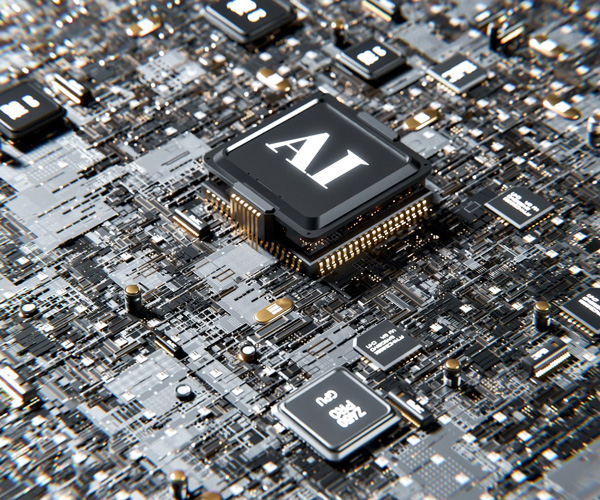Billions poured into AI, transforming health, finance, and the environment

[AI. Photo credit to Unsplash]
In 2024, companies that use artificial intelligence (AI) across healthcare, finance, and environmental protection raised over $100 billion in investment, an 80% year-over- year increase from $55.6 billion in 2023, according to data from Crunchbase and McKinsey.
AI is no longer a promising technology; it is fast becoming the backbone of innovation in some of the world’s most critical industries.
From diagnosing diseases to managing global finances and tackling climate change, AI is being entrusted to deliver solutions at scale.
The $100 billion milestone in 2024 marks a turning point, showing that AI isn’t just shaping the future; it’s already transforming the present.
In healthcare alone, AI companies brought in over $23 billion in 2024, showing how rapidly the technology is being adopted in medicine.
One example is Tempus, a company that helps doctors in determining cancer treatments through AI, raised $200 million this year, bringing its valuation to over $8 billion.
Similarly, Insilico Medicine is working to speed up drug discovery through AI and has secured substantial investment to expand its research efforts.
AI is also helping hospitals improve how lab results are analyzed, allowing diseases to be identified earlier and treated more effectively.
The financial sector is also embracing AI, with over $18 billion invested in 2024 to improve everything from credit access to fraud prevention.
Companies such as Upstart are using AI to assess loan eligibility even for individuals without traditional credit scores.
The company has already facilitated more than $16 billion in loans.
Banks are likewise deploying AI to detect fraudulent activity more efficiently, strengthening both financial integrity and consumer trust.
Beyond health and finance, AI is playing an increasingly important role in protecting the environment, especially through climate risk analysis and emergency response.
For example, Climatiq recently raised $11.6 million to improve how companies track carbon emissions using AI.
ClimateAI, another climate-focused firm, uses AI to forecast extreme weather events such as droughts and floods, aiding farmers and governments in preparation and risk mitigation.
Meanwhile, Pano AI, which leverages smart cameras and AI software for wildfire detection, raised $17 million to scale its operations in the United States and Australia.
Its technology allows emergency teams to respond to fires within minutes, often before fires grow out of control.
Companies like Descartes Labs are also making use of AI and satellite imagery to monitor illegal deforestation in places like the Amazon rainforest.
Across all of these industries, one thing is clear: companies that use AI to solve urgent challenges are attracting serious investment.
Analysts at PwC predict that AI could add $15.7 trillion to the global economy by 2030, with sectors like healthcare, finance, and climate leading that growth.
Governments are following suit.
The U.S. allocated $1.9 billion to AI research in the 2024 fiscal year, focusing on applications in public health and environmental monitoring.
China has pledged even more, with plans to invest over $70 billion in AI by 2025.
Still, not everyone sees this as completely positive.
The World Economic Forum warned that if AI keeps growing without proper regulation, it could make the gap between rich and poor worse.
But right now, companies using AI in innovative applications are seeing major results and funding.
Whether it’s fighting disease, managing money, or protecting forests, AI is being positioned as a tool for tangible, impactful change.
And with the speed at which AI is evolving, 2024 may only represent the beginning of what’s to come.

- Egshig Nandinbold / Grade 10
- Olonlog Academy School

![THE HERALD STUDENT REPORTERS [US]](/assets/images/logo_student_us.png)
![THE HERALD STUDENT REPORTERS [Canada]](/assets/images/logo_student_ca.png)
